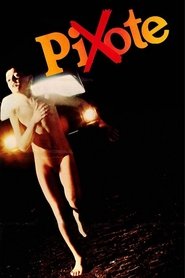Pixote (pronounced pee-SHO-tchee) is a kind of neorealistic City of God (2002), that is to say, it's an uncompromising portrayal of life in early-1980s Brazil. Clearly a landmark in Brazilian film production, but its naturalism and raw aesthetic somehow prevented it from hitting emotional notes with me. Its episodic nature reminded me very distantly of Sam Sevlon's The Lonely Londoners, albeit with a drastically different tone, and it's almost shocking how easily all of the characters accepted Lilica's gender.
It is worth contrasting Roger Ebert's review with Stephanie Dennison's Criterion essay if only to compare their social acuity. Ebert, always a little off the mark to my ear on the politics of the cinema he reviews, finds the real-life fate of the protagonist strangely inevitable:
It is not surprising to learn that Fernando Ramos da Silva, the illiterate 11-year-old who plays Pixote, returned to the streets and was killed by police bullets in 1987. [...]
Whilst Dennison is far more critical and insightful into the potentially extractive qualities of making films, documentary or narrative-based:
The success of Babenco’s film launched da Silva into a high-profile soap-opera role, but his attempt to assimilate into that particular middle-class, white world was short-lived and doomed to failure. Before long, he was lured into a life of crime, and, at only nineteen, he was shot dead by police. [...]
Synopsis: 10-year-old Pixote endures torture, degradation, and corruption at a local youth detention center where two of its members are murdered by policemen who frame Lilica, a 17-year-old trans hustler. Pixote helps Lilica and three other boys escape and they start to make their living by a life of crime which only escalates to more violence and death.

